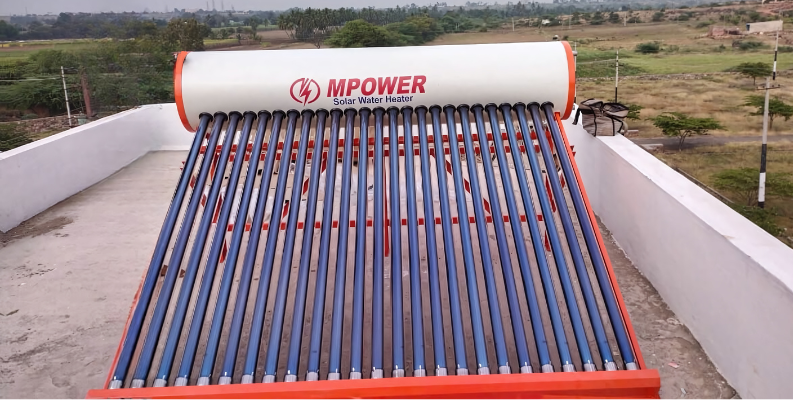Solar Water Heater
Benefits of Service
- 1 Solar Water Heaters use sunlight, a free and abundant renewable energy source, reducing dependence on fossil fuels and lowering carbon emissions.
- 2 By harnessing solar energy, these heaters can significantly reduce electricity or gas consumption for water heating, leading to lower utility bills.
- 3 Solar Water Heaters produce no greenhouse gas emissions during operation, helping to mitigate climate change and reduce environmental impact.
- 4 Solar Water Heaters can provide hot water even during power outages, ensuring a continuous supply of hot water.
- 5 While the initial investment may be higher than conventional water heaters, solar water heaters offer long-term savings due to lower operating costs and minimal maintenance requirements.
Uses
Solar Power
Providing clean, sustainable energy solutions.
Accessibility for All
Empowering widespread adoption of solar energy.
Cost-effective & Eco-friendly
Superior to diesel alternatives.
Advancing Technology
Enhancing affordability and efficiency.
Solar Water Heaters are innovative devices that utilize sunlight to heat water for various purposes, ranging from domestic hot water needs to industrial applications. This technology harnesses the abundant and renewable energy of the sun, offering a sustainable and eco-friendly alternative to traditional water heating methods.
How Solar Water Heaters Work
Solar Water Heaters typically consist of solar collectors, a storage tank, and a circulation system. The solar collectors, usually mounted on roof tops or other sunny areas, absorb sunlight and convert it into heat energy. This heat is transferred to a fluid, often water or a heat transfer fluid, circulating through the collectors. The heated fluid then transfers its thermal energy to the water stored in the tank, raising its temperature.
Types of Solar Water Heaters
There are two main types of solar Water Heaters: active systems and passive systems. Active systems use pumps or other mechanical devices to circulate the heat transfer fluid between the collectors and the storage tank. Passive systems rely on natural convection or gravity to circulate the fluid, making them simpler and often more reliable but less efficient than active system.
Active Solar Water Heaters
Active systems utilize pumps or other mechanical devices to circulate a heat transfer fluid (such as water or antifreeze solution) between the solar collectors and the storage tank. These systems require electricity to operate the pumps, controllers, and other components. Active solar water heaters are typically more efficient than passive systems and are suitable for locations with high hot water demand or varying weather conditions.
Passive Solar Water Heaters
Passive systems rely on natural convection or gravity to circulate the heat transfer fluid between the solar collectors and the storage tank. They do not require pumps or other mechanical components, making them simpler and often more reliable than active systems. Passive solar water heaters are typically less expensive to install and maintain but may be less efficient, especially in areas with low sunlight or high hot water demand.
